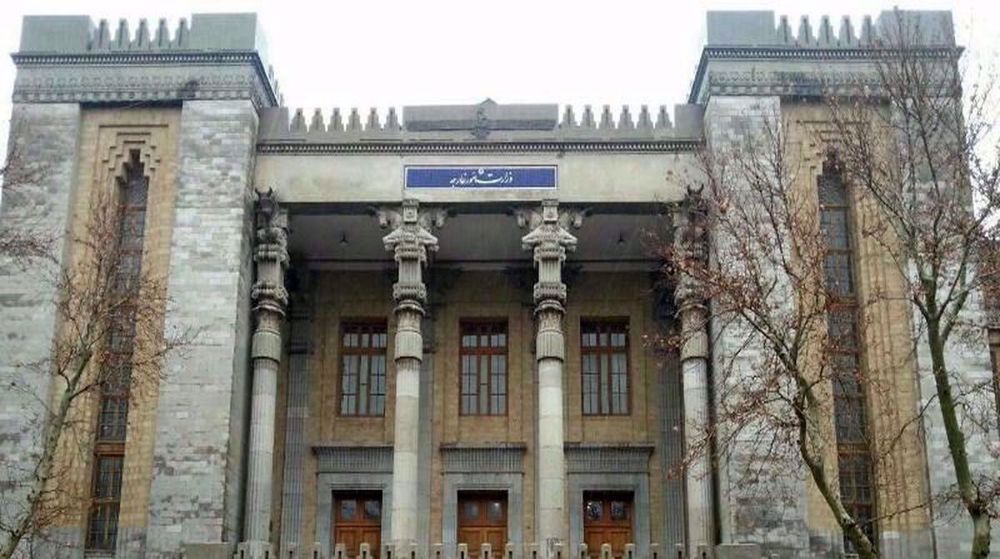A senior Iranian diplomat has highlighted five key documents issued by independent nations that “clearly and substantively” refute the European trio’s (E3) attempt to reinstate previously lifted sanctions under UN Security Council Resolution 2231, deeming the move invalid and illegal.
In a post on his X account on Saturday, Iranian Deputy Foreign Minister for Legal and International Affairs Kazem Gharibabadi elaborated on Tehran’s active diplomacy and the convergence of independent countries in defense of the rule of law and opposition to the illegal move of the European trio – Britain, France, and Germany -- in activating the so-called snapback mechanism.
In the final statement of the 19th Ministerial Meeting of the Non-Aligned Movement (NAM), held in Kampala, Uganda, on October 15–16, all 121 member states reaffirmed their commitment to multilateralism and the timeline set by Resolution 2231, he said.
He added that the NAM members emphasized that all provisions of the resolution must expire on October 18, 2025, as outlined in Paragraph 8.
He emphasized that the declaration by the Group of Friends in Defense of the UN Charter, backed by all 18 member states, praised Iran’s continued commitment to dialogue and condemned the European snapback attempt as legally and procedurally baseless—citing the US withdrawal from the nuclear deal and Europe’s failure to uphold its obligations.
The declaration also emphasizes the absolute right of all countries to the peaceful use of nuclear energy and the necessity of adhering to the principle of non-discrimination under the Non-Proliferation Treaty (NPT), the Iranian diplomat noted.
He stated that the group’s member states declared October 18 as the deadline for the termination of Resolution 2231, in accordance with the resolution’s own provisions.
Gharibabadi further noted that the permanent representatives of Iran, Russia, and China to the UN submitted a joint letter rejecting the legal validity of the snapback declaration.
They argued that the European states lack standing to invoke the mechanism due to their own non-compliance and failure to follow the dispute resolution process under the 2015 nuclear agreement – formally known as the Joint Comprehensive Plan of Action (JCPOA), he said.
“This letter announces the official end of the review of Iran's nuclear issue in the Security Council in accordance with Resolution 2231 on October 18, 2025,” the Iranian official added.
In an official letter to the UN Secretary-General and Security Council President, the Iranian foreign minister reviewed the history of JCPOA implementation and repeated violations by the US and E3, he noted.
According to Gharibabadi, the Iranian minister asserted that all provisions of Resolution 2231 and prior resolutions will expire on October 18, 2025, emphasizing that the UN Secretariat has no legal authority to interpret or enforce expired resolutions.
He said the Russian foreign minister also wrote to the UN Secretary-General, warning against any attempt by the UN Secretariat to act on expired Security Council resolutions and opposing the formation of a sanctions expert panel targeting Iran.
He emphasized that all five documents reflect a “clear and solid” consensus among Iran, non-Western powers, and a large number of independent states in support of diplomacy, multilateralism, deeming the action of the three European countries illegal, and the termination of Resolution 2231 at the set time.
They also believe that the enforcement of the terminated Security Council sanctions against Iran has no basis, he noted.
Gharibabadi said all these actions convey a unified message: “The definitive end of Resolution 2231 on October 18, 2025, the invalidity of any claims to revive Security Council sanctions, and the necessity of respecting the United Nations Charter and the rule of law."

Iran on Saturday declared an end to the JCPOA and all UN restrictions on its nuclear program following the expiration of Security Council resolution 2231, which endorsed the nuclear deal.
The country now says its nuclear file is closed and should be treated under standard international oversight.
Tehran has also dismissed recent attempts by the E3 and the US to reimpose sanctions against it as legally void.

